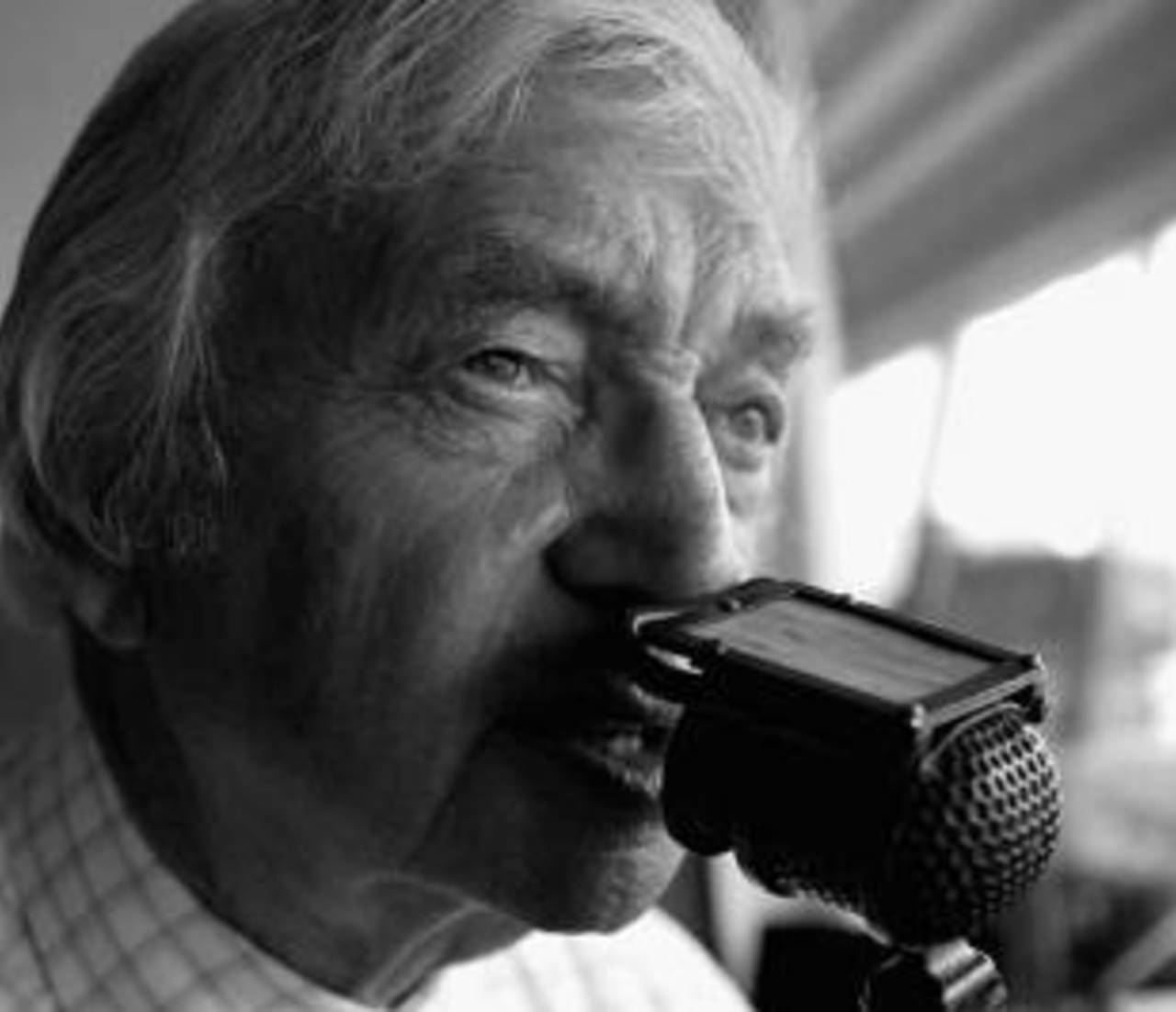To see Ivan Lendl stripy-shirted and intense in the tennis stands of Melbourne and to picture him divulging grunted subtleties about technique on Miami's back-alley practice courts is to think: "Of course."
Of course Lendl should be coaching Andy Murray of Scotland. Lendl is 52 and has not coached a pro tennis player till now. Yet no top pro ever worked harder than Lendl. None squeezed more out of what his skin gave him to begin with. Few more super-qualified tennis coaches can possibly have lived.
Murray picked Lendl. In cricket the selectors select who plays but the board decides who's coach. This minor inconsistency reflects an old distinction. The coach is seen as a board employee. The players are something between board employees and performers for their country at large. Whether the method of picking cricket coaches is the optimum method or not is one question that stirs itself. From there it's a small jump to wonder: is there someone of Lendl-like obviousness we're missing?
The Test cricket coach is a quarter-of-a-century-old invention. In Australia in that time no one's understanding of cricket's ins and outs has rivalled Richie Benaud's. A problem-solver who has pinpointed the solution before most others twig a problem exists is Ric Charlesworth. Someone who knows backwards every cricketer he sees and can turn what he sees into plain sentences with nouns and verbs in them is John Inverarity.
Frank Tyson lives on the Gold Coast and "talks like he bowled" - so wrote journalist Peter English - "a few quick words and boom. Point made." Peter Philpott has cricket's charms and technicalities roaming in his veins and passing them on is his life's calling. John Benaud speaks hard truths no player wants to hear. Geoff Dymock can offer an ear to the truths no player wishes to confess. Rod Marsh's unusual knack is to make men of all shades of masculinity fall in love with him. Mike Whitney is a born and wise storyteller whose stories make people long to be his friend. Alan Davidson could do it all - bowl slow chinamen as a boy and multi-direction cutters as a man and hit hard and catch anything. The last of these traits was self-coached: he'd
pluck an orange from a tree and hurl it and chase it. If the orange landed it would squish so there was no option but to catch it.
The ten Test nations have whirred through 105 changes of coach in 26 years. Who among these 105 made their teams significantly better? Who were flops? Who knows? We do know that not many of the 105 departed totally happy or totally by choice
Some say cricket coaching's a science. This so-called science has itself been the subject of not much scientific curiosity or certainty. The ten Test nations have whirred through 105 changes of coach in 26 years. Who among these 105 made their teams significantly better? Who were flops? Who knows? We do know that not many of the 105 departed totally happy or totally by choice. Only two were full-time legbreak bowlers - Intikhab Alam and Mushtaq Mohammad - despite legspin being allegedly cricket's most cerebral art. Also interesting: predominantly dark-skinned teams have hired white-skinned coaches numerous times but the reverse scenario has ensued on precisely zero occasions. Giants on the field - Viv Richards and Kapil Dev - proved doomed coaches. Javed Miandad has enjoyed (or otherwise) four stabs (so far) at the job in Pakistan. Off-the-scale talents like Wasim Raja and Sandeep Patil lasted periods of months that were calculable on fingers. It is the lesser-gifted hard workers - grafters - who have tended to help their teams the most.
Ranatunga and Gomes and Vettori and Mohinder Amarnath - grafters all and prime raw coaching material in waiting.
Ian Brayshaw wrote a book called The Elements of Cricket that made spinning a legbreak look easier than whistling. Shane Warne exerts a similar hypnosis simply by rolling his own arm over. Brian Booth could infuse any gang of prison escapees with notions of fair play and graciousness. Daryl Foster would run them through so many sand-dune sprints that they'd ask to be put back in jail. Bob Cowper made 307 at the MCG and millions more in the world of investment banking. Bob Hawke of Perth Modern School XI made it all the way to the prime ministership: a master motivator and consensus-broker. Bruce Laird is an afraid-of-nobody peacemaker capable of uniting warring egos within a team. Darren Lehmann seems unencumbered by ego and self-effacing enough to empower players to think for themselves. Old opener Alan Turner knows the fundamental unimportance of cricket's importance. Which is an important thing to know.
The greatest cricket coach ever made might be someone with a little of everyone mentioned above in them. Someone who on top of all that is a penetrating analyst and comfortable on TV and captained his country and whose men would - and did - follow him into revolution. Someone who - is there someone we're missing? - believes a cricket coach can do a team some good.
Thought not.
Christian Ryan is a writer based in Melbourne. He is the author of Golden Boy: Kim Hughes and the Bad Old Days of Australian Cricket and, most recently Australia: Story of a Cricket Country
